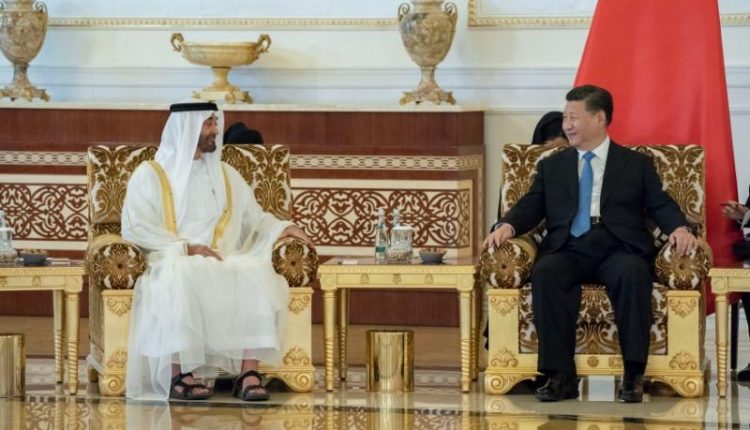Xi’s visit to UAE highlights China’s rising interest in Middle East
China and the United Arab Emirates signed a raft of financial, business and trade agreements on Friday during a visit by President Xi Jinping to the UAE, underscoring energy-hungry Beijing’s rapidly growing interest in the Middle East.
Xi made the first visit by a Chinese leader to the Gulf state in 29 years, meeting two of its most powerful leaders, Sheikh Mohammed bin Rashid Al Maktoum, ruler of Dubai, and Sheikh Mohammed bin Zayed Al Nahyan, crown prince of Abu Dhabi.
They announced 13 agreements and memoranda of understanding, including approval for the first Chinese state-owned financial services firm to set up in Abu Dhabi Global Market, a financial center, while the Abu Dhabi National Oil Company and the China National Petroleum Corporation agreed to explore joint business opportunities.
As both a major energy exporter and a hub for international trade, the UAE is an important part of Xi’s “Belt and Road” initiative to invest in infrastructure linking China by both sea and land to markets in Asia and Europe.
“We have many areas of political and economic agreement and a solid base of projects in the energy, technology and infrastructure sectors. More importantly (we have) a strong political will to start a greater phase of cooperation and integration,” Sheikh Mohammed bin Rashid wrote in a Twitter post in Arabic on Friday.
“Today, we have exemplary relations with China and a Chinese leadership that sees the UAE as main strategic partner in the region,” he added.
China is the UAE’s second largest trading partner and biggest source of imports. The UAE is the gateway for about 60 percent of China’s exports to the Middle East, and on its own accounts for around a quarter of total Arab trade with China.
UAE economy minister Sultan bin Saeed al-Mansouri said that total bilateral trade between his country and China is expected to reach $58 billion in 2018, up from $53.5 billion in 2017.
In 2013, Xi outlined the Belt and Road initiative which involves billions of dollars of infrastructure investment to reinvigorate the ancient overland silk road trade route and develop a new sea equivalent. The UAE sits close to both routes.
China’s commerce minister Zhong Shan said that his country was ready to cooperate with the UAE to promote globalization.
“This future of cooperation is broad as both UAE and China are advocates of the economies and multilateralism. On this we have mutual interest and a joint position,” he said.
China has traditionally played little role in Middle East conflicts or diplomacy despite its reliance on the region for oil, but has stepped up its involvement since Xi came to power six years ago. Beijing has had to tread carefully, though, with Gulf Arab states like Saudi Arabia and the UAE, as China also has close ties with their rival Iran.


